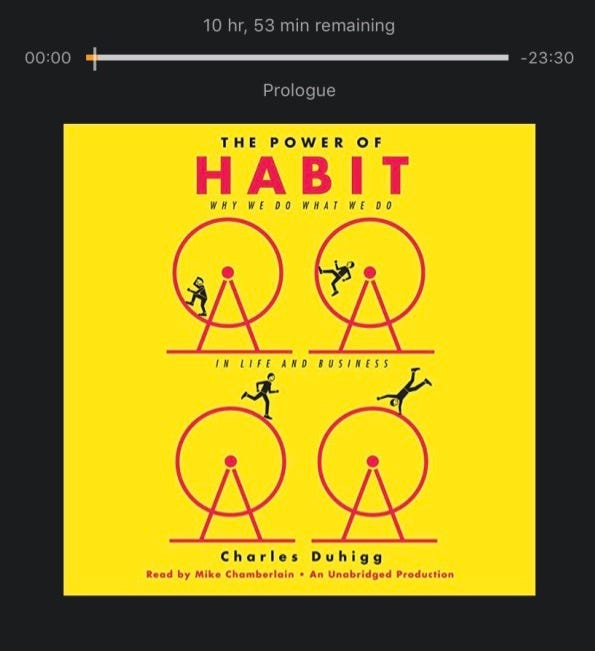The Power of Habit by Charles Duhigg

Looked at as one of the best books for creating success within our lives, this book was recommended by a few different people to me. I thought that there might be more I could learn about habits and disciplines — especially as my nightly 20 pages of reading has not been as consistent in 2019 as it was in 2018.
The first highlight of this book was something that I was well-accustomed to and have done for myself before and continue to do for myself. The difficulty here, with defining rewards, is that sometimes there is not a specific external reward — so we must create an internal reward for ourselves. Some people are motivated by traveling and a reward that motivates them might be a nice trip to Greece. For me, a job well done is the motivation.
Find a simple and obvious cue and clearly define the rewards.
This is one of the reasons that people who quit smoking are often seen eating chips or some other snack rather than smoking. They are replacing a craving with another. There have been experiments and practices that people have done that work with people who desire to stop biting their nails. They are taught to recognize each time that they desire to cut their nails and then to identify what they are doing, thinking, and feeling in that situation. I believe that this is the best way to create habits. Before I buy something new I go through the same practice, I live a week and identify the times — if there are times — that I desire that new thing I have not yet purchased.
Cravings drive habits. Figuring out what creates a craving makes creating a new habit easier.
If you don’t believe, nothing will happen. If you expect to fail (believe to fail) you most likely will.
Beliefs make habits possible and make their impacts powerful.
I forget the example here but it’s like they say, “how you do anything is how you do everything.” The little things compound and become the big things. Simply creating one habit — like reading nightly creates a ripple effect. And while we cannot change others, by changing some of the things that they do, we are in effect, leading them to change. The author shared the following,
“You can’t order people to change, that’s not how the brain works.” I decided I would focus on one thing and let the ripple effect spread throughout everything people do.
“Failing to plan is planning to fail.”
If we do not know what we are going to do when something happens to us, we can not be confident that we will make the right decision or act in the best way. We are said to make so many decisions each and every day. The most successful people have well-defined habits that result in daily disciplines decreasing the number of decisions that are made each day — thereby reserving limited willpower for the inevitable tough choices.
Creating keystone habits where values become ingrained, makes tough choices easier.

People often like to be in control of themselves so giving them even a sense of control, improves the likelihood of them being comfortable and ultimately successful. In the short-term, it might not matter if you simply have someone follow orders, but in the long-run, that is, as the author shares, very very taxing on the individual.
Giving people a sense of control increases willpower. It is much less taxing, but if just following orders, their willpower muscles get tired much quicker.
This was something that I made note of because I thought it was interesting yet, it was not too surprising to me. I have read various studies that show new parents — or soon-to-be parents — spend a lot compared to before having children. Their spending habits undergo a drastic shift. The author shared examples of companies that target new parents and market directly to them.
People’s buying habits are more likely to change when they go through a major life event. New parent’s habits are most flexible at that time in life.
I loved the following point, I agree, it’s the best way to introduce a new habit to someone. If you want to implement good study habits for your child, it’s important to wrap that new habit into something that they already know and like.
To sell a new habit, wrap it in something people already know and like.
As I alluded to earlier, it is important that we recognize key things regarding when a habit is cued. Some people enjoy having a drink after work to cool down or relax. But, what is the real cue? What is the cue to turn on Netflix or a movie? The other habits that you have, there are 5 things that the author shares we need to become aware of before we partake in a habit.
Diagnosing cues for habits, write 5 things the moment that the urge hits:
1. Where are you?
2. What time is it?
3. What is your emotional state?
4. Who else is around?
5. What action preceded the urge?

I liked this book and learned some great things from it that have been more used to refine the things that I do rather than change anything dramatically. What I seek to do is improve everything — my efficiency, effectiveness, and ultimately, my results.
I gave this book a 3/5